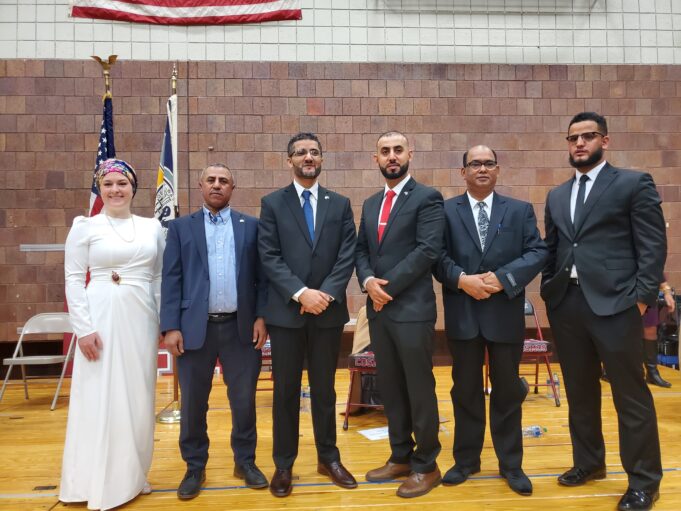by Andrea Muhammad
HAMTRAMCK, Mich.—Michigan reached a milestone as the first state in the country to have several Muslim mayors voted into office. Hamtramck, sister cities Dearborn and Dearborn Heights along with Benton Harbor elected and re-elected Muslim mayors. But in Hamtramck incredible history was made with the election of what is believed to be the first all-Muslim city council and mayor in American history.
Hamtramck is an incorporated enclave that is surrounded mainly by Detroit. Dr. Amer Ghalib, who is of Yemeni descent, was elected as Hamtramck’s first Muslim mayor alongside an all-Islamic city council. The political leaders were sworn in during Jan. 2 ceremonies in the city. The three new city council members are Adam Albarmaki, Amanda Jaczkowski, who converted to Islam, and Khalil Refai.
Much of the power in the city lies with Kathleen Angerer, Hamtramck’s city manager, who welcomed the newly elected officials during the ceremony.
The 2.1 square mile enclave was incorporated by Polish immigrants in 1922 and has long been recognized as a thriving center of Polish culture.
In 1930, the Nation of Islam was founded in Detroit by Master Wallace Fard Muhammad, the Great Mahdi of the Muslims and the long-awaited Messiah of the Christians. He came to North America from Saudi Arabia by himself.
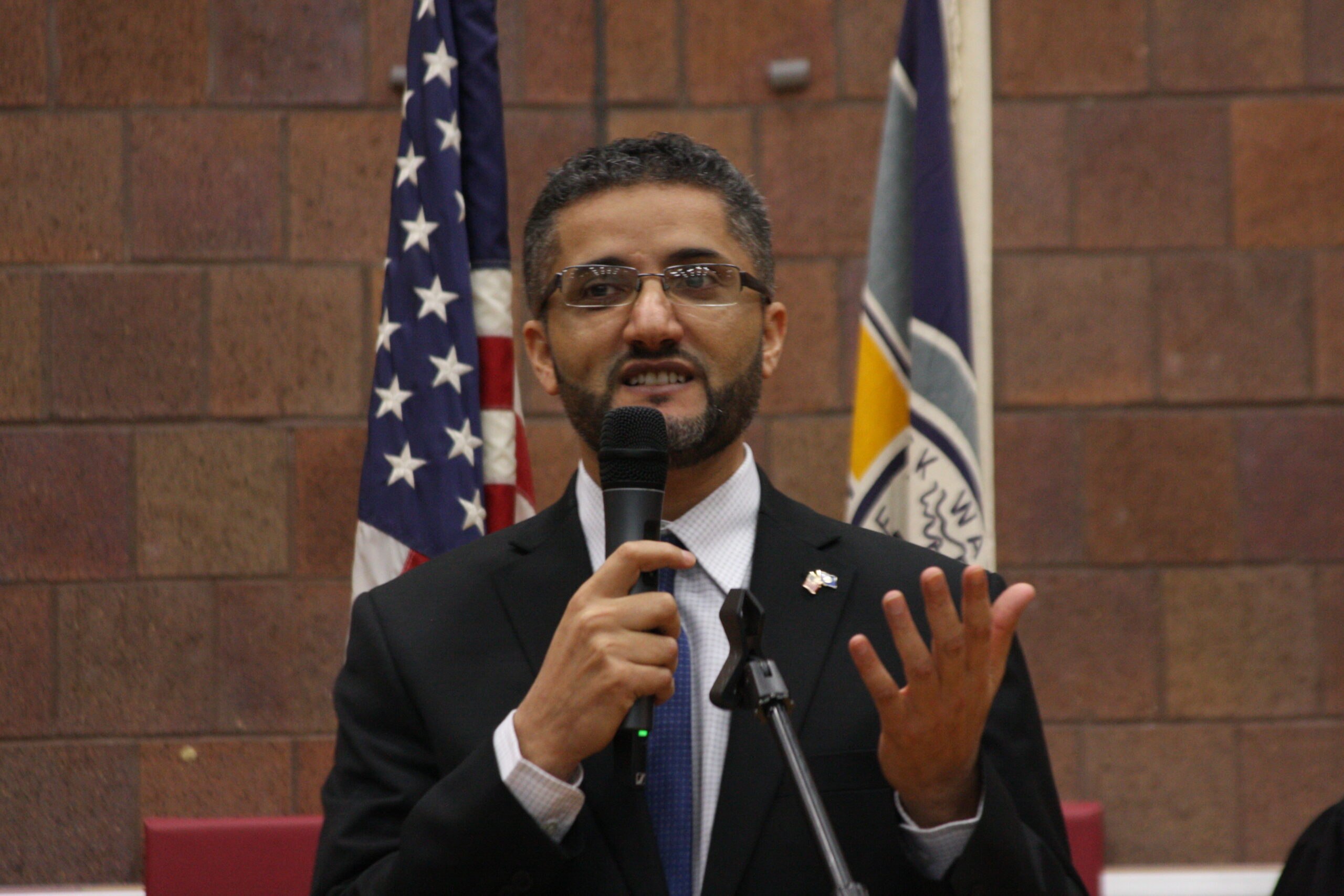
Hamtramck has relevance in the Nation of Islam’s history.
During “The Great Migration,” millions of Black people made an exodus from Jim Crow-era southern states to northern cities in search of better living conditions.
The Most Honorable Elijah Muhammad, who was taught and entrusted with the Nation by Master Fard Muhammad, and wife Clara moved their family from Macon, Ga., to Detroit in 1923.
They joined the Nation of Islam after attending a meeting and meeting Master Fard Muhammad in 1931. In 1932, their family moved to 3059 Yeamans Street in Hamtramck. Later, they received a post card from Master Fard Muhammad informing them he paid their first month’s rent.
Hamtramck’s demographics have been transformed by a trifecta of factors, including an aging Polish population, White flight and immigration from Muslim countries like Yemen, Iraq, Lebanon, Pakistan and Bangladesh.
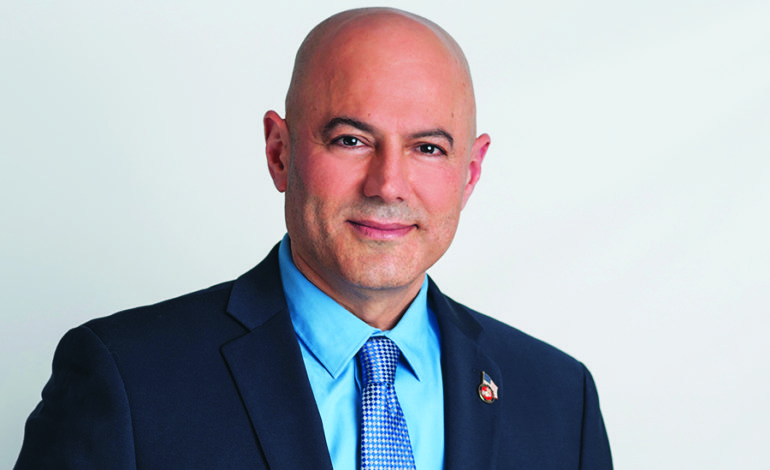
According to the city’s website and 2020 Census data, Hamtramck’s population grew to 28,433 or an increase of 26.8 percent over the 2010 Census. The racial makeup of the city was 53.6 percent White (which includes people of Middle Eastern ancestry), 19.3 percent Black American, 0.3 percent Native American, 21.5 percent Asian, and 4.7 percent from two or more races. Latinos of any race were 1.5 percent of the population.
Local businessman Wessam Ali noted Hamtramck’s growing immigrant population and increasing diversity has resulted in a changing of the guard. “For 99 years, every mayor of Hamtramck was of Polish descent. Now today, the Adhan (Muslim call to prayer) could be heard throughout the city in the moments leading up to this historic inauguration,” he said.
During his speech, Mayor Ghalib shared an experience as a young immigrant that is encountered by many Black and Brown students. He recalled a conversation with his school counselor in his senior year of high school. “She looked at me and said, ‘What do you want to study when you go to college? I answered without hesitance, ‘political science!’ She replied, ‘You have an accent when you speak English, and your background [a Muslim immigrant] would not be in your favor.’ ”
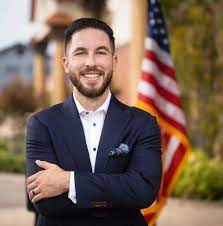
The discouraged honor student took his counselor’s advice to study his second favorite field of interest, medicine.
After 10 years of studying medicine and serving his community, he decided to come embrace his first love, politics.
Realizing he’d come full circle, the mayor told the audience, “I did not come back emptyhanded. I brought with me a lot of knowledge, skill, as well as crucial ethical principles that I learned in medical school.”
Rashi Beydoun acknowledged the historic election was due, in part, to sacrifices made early on. “What we witnessed today was really years and years of struggle that was paved by others who made that journey [to America]. Access to the ballot is actually access to shaping your community and when you finally reach that milestone, you can see the exuberance everyone was feeling today in the audience,” he said.
Mr. Beydoun shared how the mayor’s being discouraged from pursuing public service by a high school counselor really resonated with him.
“Just hearing the stories, the struggles, the immigrant experience, as an educator myself, I know what it’s like to see young people have these dreams finally fulfilled is truly beautiful,” he said.
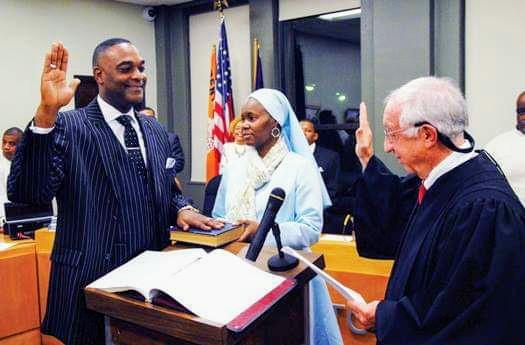
In closing, Dr. Ghalib pledged, “As the mayor of Hamtramck, I will ensure that all residents have the right to autonomy, and we will lend an ear to what they have to say. If I can’t help you, I will never do anything to harm you.”
“Although I can’t promise that we may not always see eye to eye, I can promise that I’ll never refuse to negotiate and learn from each other’s differences,” he added.
Shareefa Albanna, a startup venture success manager and economic development specialist with the University of Buffalo, traveled from Buffalo, N.Y., to witness the Muslim majority government being sworn in.
“I’m a longtime advocate for diversity, inclusion, equity and awareness. I’m here all the way from the state of New York in support of the city and all the local officials in this historic win,” she said.
Ms. Albanna expressed pride in the added value the close-knit Yemini community has brought to Hamtramck.
“The mayor spoke of benevolence and what the Yemeni American people have brought to this city, state and country. I hope to see more change and diversity,” she said.
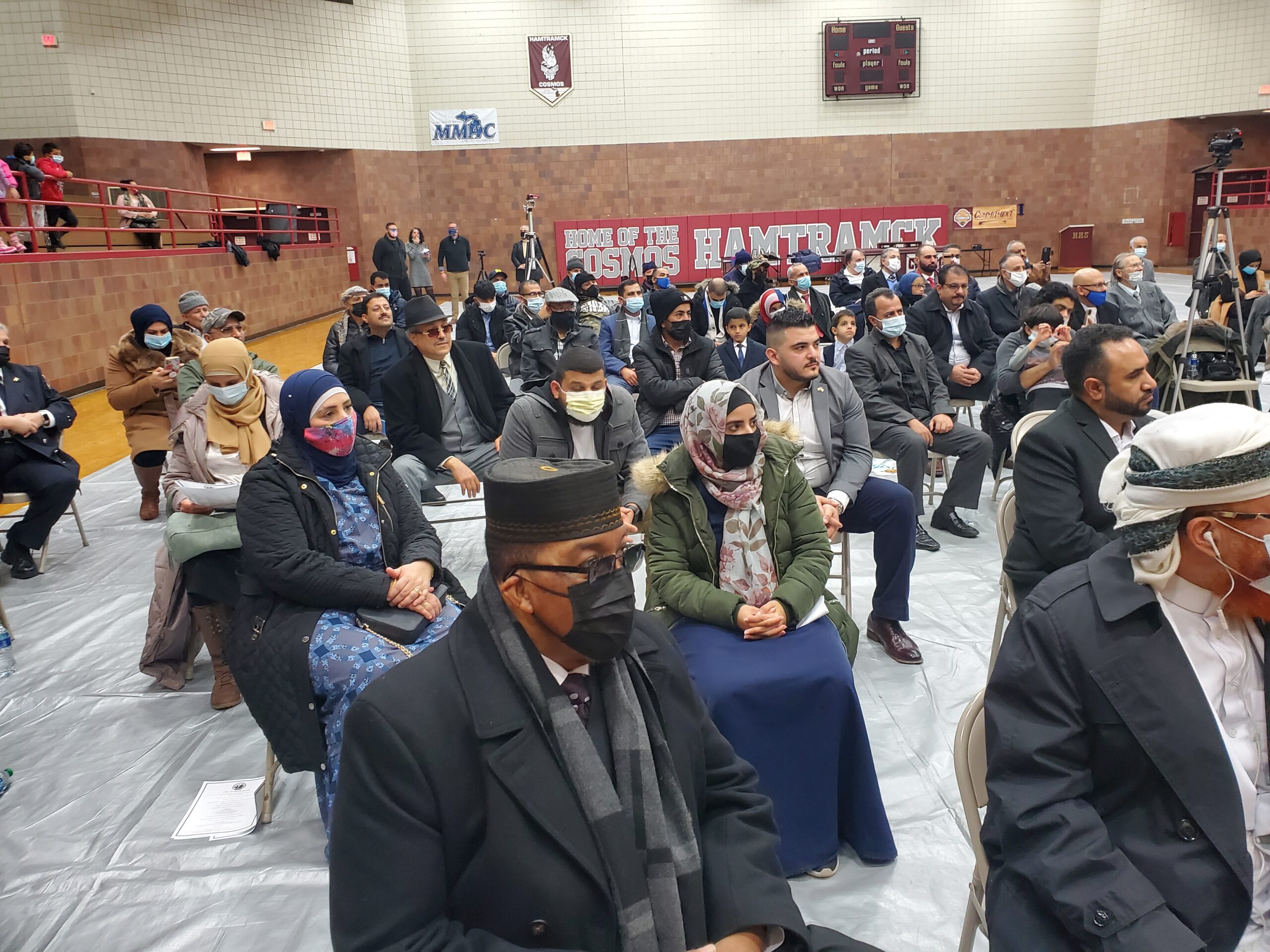
Dearborn and Dearborn Heights are suburbs located in the metropolitan Detroit area. Fifty-five percent of Dearborn voters elected 31-year-old former State Representative Abdullah Hammoud, making him the city’s first Arab Muslim mayor of Lebanese descent. Dearborn’s population according to the 2020 Census is 109,976. Mayor Hammoud will preside over the largest Muslim population per capita in the United States.
Meanwhile in neighboring Dearborn Heights, councilman Bill Bazzi was chosen by the city council in January 2021 to complete the remaining term of Mayor Dan Paletko, who died in office of Covid-19. Mr. Bazzi became the city’s first duly elected Muslim mayor of Lebanese descent in November 2021 balloting, garnering 72 percent of the vote.
The precursor to the historic election cycle of 2021 is the 2015 election and 2019 re-election of Benton Harbor, Mich., Mayor Marcus Muhammad. Unlike the other cities, Benton Harbor is 186 miles west of Detroit with a population of 9,615. The city is 84.7 percent Black and mostly Christian. Mr. Muhammad made history as the first Muslim mayor elected in Michigan. He’s also a member of the Nation of Islam’s Benton Harbor Study Group.
Mayor Muhammad, while looking at the growing number of Muslim elected officials, referred to a saying of Prophet Muhammad that “Islam began as something strange and will go back to being strange, so glad tidings to the strangers.” And, Marcus Muhammad said, “Islam will come after everything else fails.”
“We know that all politics start local. With that as a backdrop, foreign policy is the biggest issue that Muslim nations have with America,” he observed. Highlighting a point made by the Honorable Minister Louis Farrakhan of the Nation of Islam, Mayor Muhammad underscored Muslim nations’ issues are not with the American people, but U.S. foreign policy.
“If policies and attitudes on the local level change then that gives way for an opportunity for change at the state, federal and international level. The biggest fear that those who oppose the Honorable Minister Louis Farrakhan have is that his influence will spill over into the political realm and change America’s foreign policy,” said Marcus Muhammad.
As he embarks on his second term, Mayor Muhammad points out the benefits Muslim elected officials can provide constituents. “Freedom, justice and equality is given to every resident no matter creed, class, color or religion. That’s the type of leadership city, county, state and federal governments need in a time of uncertainty; where we can put party, partisanship even religious ideologies aside. Where self-interests are surpassed by service, that’s what residents and electorates will be looking for in candidates in the years to come,” he commented.
In February 2020, during his Saviours’ Day keynote address, Minister Farrakhan warned of the unraveling of the once great American nation.
Amid this unraveling, Mayor Muhammad sees Michigan in the seminal stage of what politics and government will be in the not too distant future. “Voters are dissatisfied. They deserve and are demanding better from their elected officials,” he said.












